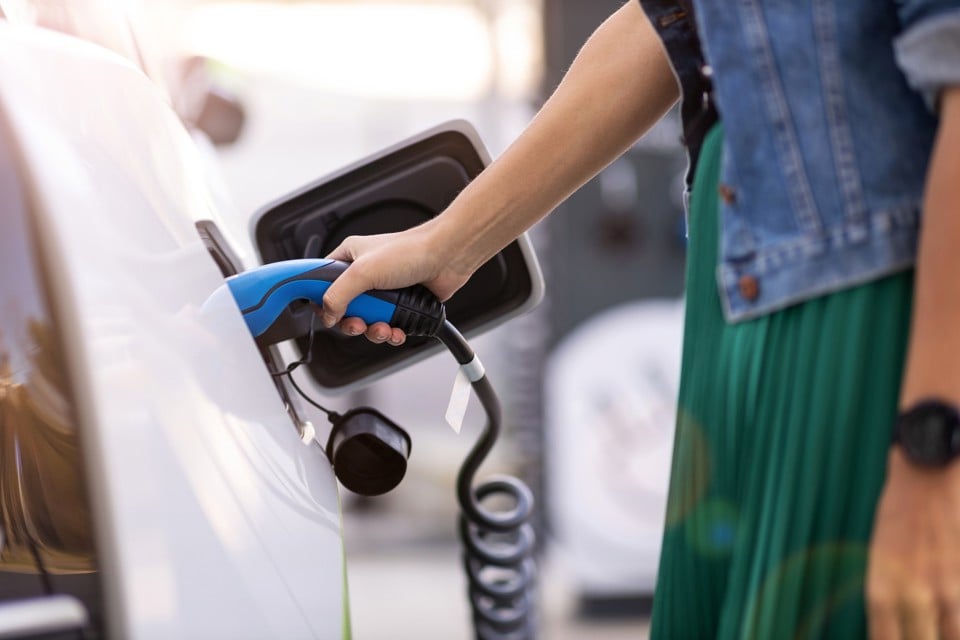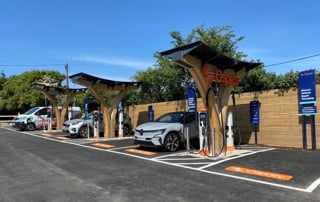There has been a reduction in the number of businesses offering free electric vehicle (EV) charging for employees at the workplace.
Research from the Arval Mobility Observatory Barometer shows a decrease in the percentage of companies offering free charging, probably as a result of recent increases in the cost of electricity.
“Since this question was asked in last year’s research, the number of fleets offering free power at their premises has fallen from 29% to 17%,” said Shaun Sadlier, head of Arval Mobility Observatory in the UK.
“As an effect of soaring prices, it has simply become too expensive for many to continue to give electricity away.”
However, the research also revealed that an increasing number of employers are offering on-site EV charging for their employers, with numbers set to double in the next 12 months.
The Arval Mobility Observatory suggests that currently one-in-five businesses (20%) have charging available at their premises, but this will increase to two-in-five (40%) within the next year.
Sadlier said: “This represents a relatively important shift in supporting drivers who choose or are provided with an electric car or van through their employer.
“It means EV drivers visiting other companies should be able to increasingly access charging for their return or subsequent journey, saving time and presumably also accessing cheaper power than if they had to pay for public charging.”
As of June, the Government had spent £4.6 million helping employers install workplace charge points in the previous 12 months.
Since the Workplace Charging Scheme (WCS) started in late 2016, a total of 16,235 vouchers, collectively worth £15.8m, have been redeemed helping to install 42,104 charge points.
Almost a quarter of the cash – some £4.64m – was spent in the past year, with 5,824 vouchers redeemed, helping to pay for the installation of 13,396 sockets, a year-on-year increase of almost 3%.
One of the considerations that businesses need to think through is the mix of charging points which they install, according to Sadlier.
One set of drivers may need access to a rapid charger to get sufficient additional miles, while for another group of drivers a slower charger will be adequate.
“Whether this all materialises in exactly the manner we’d hope is difficult to say – employees could ‘hog’ the chargers on their own company car park, but it does hopefully mark the beginning of a crucial infrastructure shift towards noticeably wider charger availability,” he added.
The research also highlighted some divergence when it comes to attitudes towards home charging – with around a third (32%) of businesses paying for their employees’ installation, but half that amount (16%) leaving drivers to foot the bill themselves.
“It will be interesting to see how this situation develops as we head towards the 2030 new combusion engine deadline with increased pressure for as much home charging to be made available as possible,” continued Sadlier.
“Charging at home tends to be one of the cheapest options for EV users, so helping them to access that power by paying for charger installation will make sense for many employers.”
To discover more about the Arval Mobility Observatory and the 2023 Barometer findings, click here.






















Login to comment
Comments
No comments have been made yet.